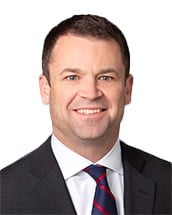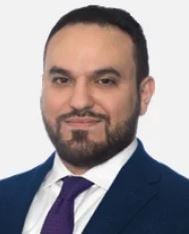On 19 March 2020, the US Treasury Department’s Office of Foreign Assets Control (“OFAC”) sanctioned five companies based in the United Arab Emirates (“UAE“), pursuant to Executive Order 13846 (“EO 13846”), for their alleged involvement in purchasing hundreds of thousands of metric tons of petroleum products from the National Iranian Oil Company (“NIOC”) for delivery to the UAE. The following UAE-based companies were added to the US Specially Designated Nationals and Blocked Persons List (“SDN List“): (1) Alam Althrwa General Trading LLC, (2) Alphabet International DMCC, (3) Alwaneo LLC CO, (4) Petro Grand FZE, and (5) Swissol Trade DMCC (together the “Sanctioned Companies“).
Implications of the Designations
OFAC designated the entities pursuant to EO 13846, which authorizes the imposition of US sanctions on non-US Persons that provide material support to certain previously designated Iranian entities, including NIOC. US Persons (e.g., entities organized under the laws of a US jurisdiction and their non-US branches, individuals or entities in the United States, and US citizens or permanent resident aliens wherever located or employed) and non-US entities owned or controlled by US Persons are prohibited from engaging in any dealings with the Sanctioned Companies and any entities the Sanctioned Companies own, directly or indirectly, a 50% or greater interest in. Further, following the US withdrawal from the Joint Comprehensive Plan of Action (“JCPOA“, i.e., the ‘Iran nuclear deal’), non-US Persons dealing with these SDNs could become the target of US secondary sanctions, even for transactions that occur wholly outside of US jurisdiction (e.g., those not involving US Persons or US-dollar payments).
This latest action follows the US Government’s continued commitment to enforcing existing US sanctions against Iran. Although OFAC has typically used existing sanctions authorities to target Iranian entities, other non-US, non-Iranian companies are increasingly being targeted for their involvement in Iran-related activities. For example, in January 2020, OFAC designated four international petrochemical and petroleum companies based in China, Hong Kong, and the UAE for their apparent involvement in transferring payments to NIOC related to the purchase of Iranian petroleum and petrochemicals products.
OFAC’s recent action demonstrates that the US Government is focused on continuing to impose maximum economic pressure on Iran and limiting the Iranian Government’s ability to raise revenue and engage with global markets. Non-US companies that are or may be considering becoming involved in activities or transactions involving Iran should carefully consider the US sanctions and export controls considerations that could apply, including those sanctions authorities that target the activities of non-US Persons.
The current maximum per-violation civil monetary penalty authorized under US law for violations of US sanctions targeting Iran is the greater of USD 302,584 per violation or twice the amount of the underlying transaction. There are also criminal penalties for wilful violations of up to USD 1 million and 20 years in prison.
What does this mean for those based or doing business in the UAE?
The recent OFAC designations demonstrate the sanctions-related risks relevant to both doing business in the Middle East and with the hydrocarbons sector. Those considering sanctions implications in the region should reflect on this recent OFAC action when conducting due diligence and risk-profiling on counterparties and customers.
Aside from the US secondary sanctions that can apply to UAE-based companies with no US nexus, there are also a number of local law concerns that should also be considered. For those based in the Dubai International Financial Centre free zone (“DIFC‘), Rule 7.6.2 of the Anti-Money Laundering, Counter-Terrorist Financing and Sanctions Module (AML) of the Dubai Financial Services Authority (“DFSA“) Rulebook, requires all regulated firms to conduct ongoing sanctions screening of customers, their business and transactions against the United Nations Security Council sanctions list (which is directly applicable in the UAE) and “any other relevant sanctions list“. Further to the DFSA’s guidance note for AML Rule 7.6.2, this may include UAE, EU, UK HM Treasury and OFAC lists. Similarly, for those based in the Abu Dhabi Global Market free zone (“ADGM“), the potential relevance of OFAC-administered sanctions and sanctions lists is specifically recognised in several places within the Anti-Money Laundering and Sanctions Rules and Guidance (“AML”) of the ADGM Financial Services Regulatory Authority (“FSRA“).
In any case, for all regulated financial institutions and designated non-financial businesses and professions (“DNFBPs“), whether based in the DIFC, the ADGM or the rest of the UAE (i.e., ‘onshore’ UAE), any prior or incoming transactions made by or on behalf of an SDN will likely trigger the requirement to file a Suspicious Activity Report (“SAR“) with the UAE’s Financial Intelligence Unit (“FIU“), pursuant to UAE Federal Anti-Money Laundering Law (Federal Law No. 20 of 2018, which was issued in the wake of the UAE’s Mutual Evaluation by the Financial Action Task Force (“FATF“). For those based in the DIFC and ADGM, should a SAR be filed with the FIU, the relevant regulator should be promptly notified accordingly.
Additionally and as an emphasis on the need to conduct appropriate due diligence on counterparties and customers, the OFAC Economic Sanctions Enforcement Guidelines specifically identify ‘willful blindness’ and ‘reason to know’ as potential aggravating factors (General Factor B – Awareness of Conduct at Issue). In its Framework for OFAC Compliance Commitments document, published in May 2019, OFAC provided guidance and outlined its expectations for US Persons and “foreign entities that conduct business in or with the United States, U.S persons, or using U.S.-origin goods or services”, strongly encouraging such organisations to develop, implement and maintain a sanctions compliance program that addresses OFAC-administered sanctions.
Should you have any concerns with regards to your global sanctions and anti-money laundering obligations and risks, please do not hesitate to contact our team.



